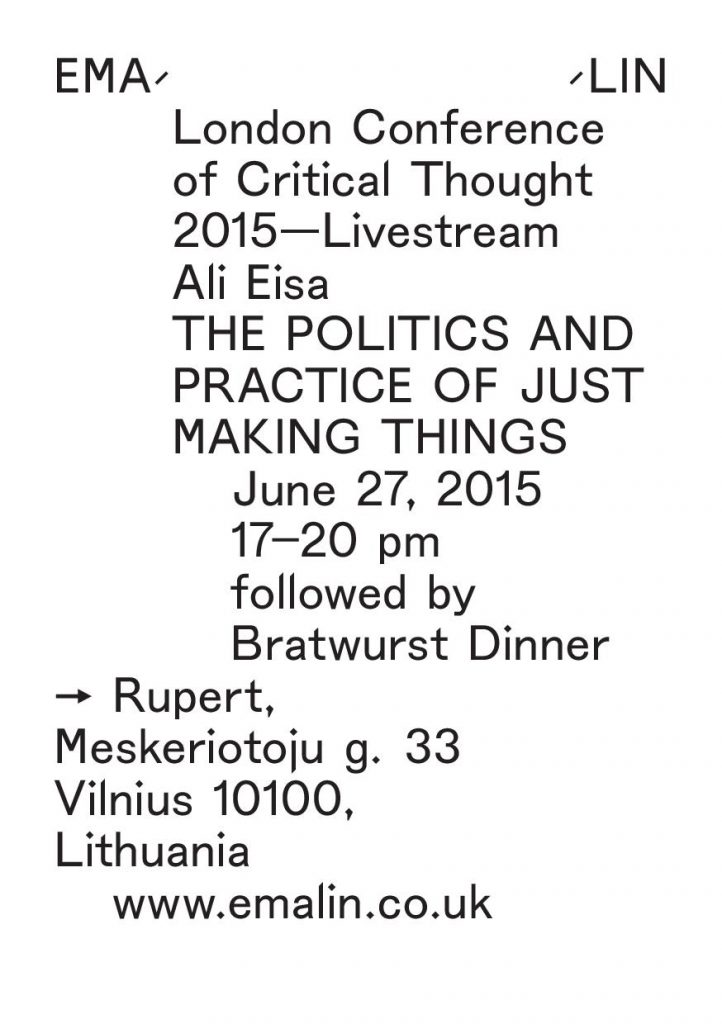Conference
The Politics and Practice of Just Making Things

Presentation of works and roundtable discussion with:
Augustas Serapinas
Elena Narbutaite
Viktorija Rybakova
Vytenis Burokas
Ali Eisa (Chair)
Shama Khanna (Live Respondent)
This event will bring together a group of contemporary artists who will present and discuss their work in the context of exploring, expanding, complicating and re-imagining the practice and boundaries of ‘making’. Their works provide challenging notions of what and who ‘making’ might involve as well as its experience, performance and reception by publics. They explore diverse processes and materials including: the making of hidden spaces, intimacy and contemplation (Serapinas); light, technoscientific invention and perception (Narbutaite); the architecture of books and archives (Rybakova); microbes, social histories of brewing and the generative state of inebriation (Burokas). There will also be a live response to the works and discussion unfolding through the curation of images, further exploring the relationship between making and the potentials of digital and technical mediation (Khanna).
In recent years there has been an increasing and renewed significance of “making” as a valued, contemporary, socio-cultural practice. This is evident in the proliferation and resurgence of popular material practices such as craft and artisanship, digital and personal fabrication, amateurism, DIY and prosumption. ‘Making’ has also developed significant traction and critical attention within academic fields such as the social sciences, expanding on the primacy of text to engage notions of the visual, sensory, live and inventive as crucial in the making of research.
However, the logic behind naming such practices ‘making’ invites numerous questions and concerns. Broadly speaking, given such a breadth and heterogeneity of ‘making’ practices, to what does this often colloquial yet conspicuous term really designate or refer?
Does it capture a shared, human sensibility of the hand in its continued exploration of materiality or a more complex, oblique constellation of skills and techniques? What is specific about the relationship between ‘maker’ and ‘material’, what kinds of actions, processes and labours must be performed? How might this assume or challenge normative, humanist and essentialist understandings of subjectivity and agency? Given the primacy of capitalist production that has so comprehensively furnished the contemporary world, how does ‘making’ intersect, intertwine, intervene or diverge from these wider socio-technical conditions? If ‘making’ foregrounds the production of and experimentation with physical media, how does this constitute a mode of knowledge production? Is this in excess, refusal or opposition to the conventionality of linguistic forms? Does this raise issues of the constitution and negation of material as necessarily physical as opposed to the immaterial, speculative or other?
Ali Eisa is an artist and researcher based in London. His residency in Rupert forms part of an ongoing collaboration between Rupert and London-based gallery Emalin, currently operating on a nomadic basis, organising temporary pop-up exhibitions.